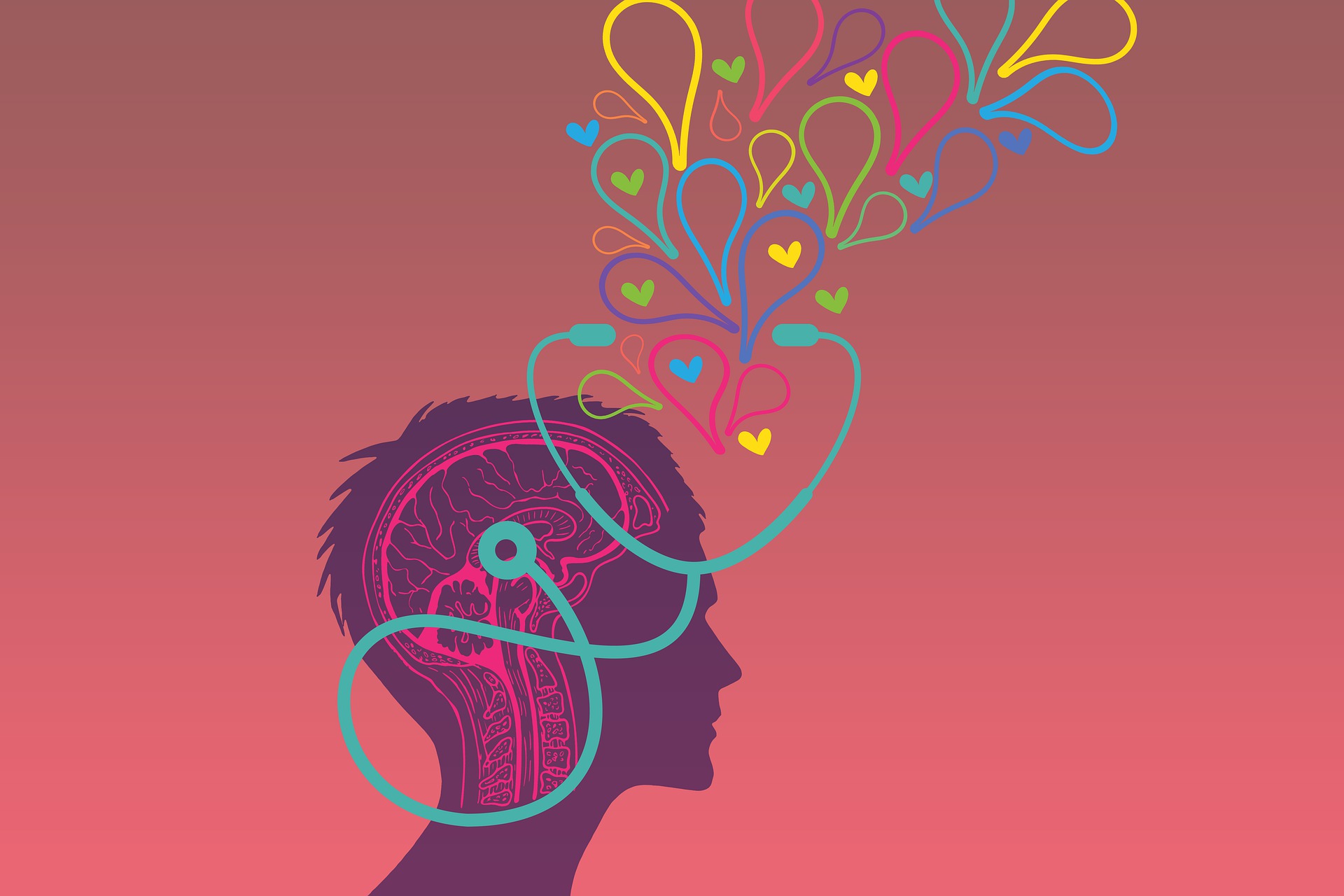In recent years, I’ve learnt so much about the brain that my biologist teacher guy at school would be super impressed with my efforts. Come to think of it, I didn’t even study biology yet I can officially call myself an injuredbrainologist and yes I have coined that term. My point is, I’ve learnt a lot about what makes it tick through experience and research. So much research, that I can unofficially call myself an injuredbrainologist-guy (No, I’m not an expert).
There are a few terms that the modern psychologists of our time will know all too well and one of those terms is called Flow. We’re not talking about water in a river, we’re talking about a mental state that we all strive for. In this week's blog, I will delve into this state of consciousness.
Have you ever been so deep inside your head whilst doing an activity that time just flies by? Like, one minute you’re starting something and the next minute it’s finished, and you think ‘How on god’s earth am I finished already? Not only has time gotten away from you to the tune of 6-hours, but you’ve also missed Granny's 93rd birthday. No me neither but you understand me I hope? Well, this state of consciousness is called ‘flow’.
It is very important, for numerous reasons, to find this state when we are achieving our goals. Achieving the goal itself is not where flow comes into play, but while doing activities relating to that goal. If we can find goal-related activities that get us into this state, that help us achieve the goal, we will find it not only more enjoyable but also easier to achieve.
If we are in flow we will be extremely motivated to kick some major ass and we will perform at a higher level. This means that if we are in flow we will not have to put in as much effort. Here’s the fun part, if we DO put in more effort we will achieve a higher result… producing more flow-like symptoms. The good thing about flowing through life is that it makes us want it more. A bit like drugs… umm… not that I’ve… umm… ever had any? Ok, I once was… ok I’ll stop there because now it’s personal. Back to flow.
It’s very easy for me to sit here and tell you to sink into flow and you will stay motivated, but you're probably thinking to yourself, “What a stupid blog, I don’t even know what he’s on about. What’s flow?” To that, I’d say, “Keep reading!” So what is it? The leading pioneer in this research is psychologist Mihaly Csikszentmihalyi. Yes, that’s his real name (I dare you to say that 10 times with a mouthful of cinnamon!). Csikszentmihalyi was born on September 29, 1934, in the independent state of Fiume (which later became Rijeka, Croatia) and migrated to the US at the age of 22 to earn his PhD.
When Csikszentmihalyi was fresh off the boat, flow wasn’t a thing, it was just a feeling, and he knew that he wanted to find out what the feeling was.
So, Csikszentmihalyi set out to discover what it was that took people into this state and how they can find it. Long story short, he has spent his life studying it and called it “flow”. Csikszentmihalyi describes this state as “A state in which people are so involved in an activity that nothing else seems to matter; the experience is so enjoyable that people will continue to do it even at great cost, for the sheer sake of doing it” [1].
To find this state, one must reach for a goal that is both equal in skill and challenge. This model explains how flow works.
The flow state begins when we have concoction of one part skill and one part challenge. The higher on both axes in turn results in more of the good stuff. In his book, Finding Flow, 1997, Csikszentmihalyi explains, “If both challenge and skill are perceived to be low, one gets to feel apathetic. But when high challenges are met with high skill, then deep involvement that sets flow apart from ordinary life is likely to occur”[2]. When we reach a point of high skill-to-challenge ratio, we become totally oblivious to the surrounding world.
Flow is not a happy state of consciousness, because whilst in this state we do not have time to think intrinsically about our emotions. Csikszentmihalyi goes on to say, “When we are in flow we are not happy, because to experience happiness we must be focused on our inner states, and that would take away attention from the task at hand”.[3] The goals that I’ve set in my recovery through rehab and beyond, like walking running, snowboarding, travelling etc. have all taken me into this state. They have all been an equal part challenge to skill and I believe this is why I’ve been so successful.
This is in fact a perfect state to be for our goals because if we are here, we are completely 100% focused on our goals and nothing else, which, in fact, means that our consciousness has no room for fear either, making us unstoppable. Put simply, the more moments we can experience this state while achieving our goals, the easier these goals will be to accomplish, in turn leaving room for the bar to be raised.
The reason for this is that our nervous system can only take in a certain amount of information per second and when we’re fully present, the activity is taking up every bit of information available. Flow is when we forget to eat when we are no longer aware of our need to wee and it is the exact reason we can stay up all night doing something we love; because we are doing something that we are fully immersed in. What a good way to get shit done, right?
Anywhere from Arousal to Control is good for our goals because from here it is easy to move into flow. Arousal is where we learn the most because the challenge is a bit higher than our skill level, but not too much so that it’s out of reach. From here, all we need to do is to keep working on our abilities and we’ll be in flow. Control, on the other hand, is lacking a bit in challenge so the easy fix is to set a more challenging goal.
Viktor Frankl, an Austrian neurologist, psychiatrist and a Holocaust survivor, wrote in his book, Man’s Search for Meaning, 1946, “What man actually needs is not a tensionless state but rather the striving and struggling for a worthwhile goal, a freely chosen task. What he needs is not the discharge of tension at any cost but the call of a potential meaning waiting to be fulfilled by him[4]”. Csikszentmihalyi has spent his life understanding this concept.
After years of researching the topic of flow, he came up with 10 different criteria[5] that are required in an activity to achieve flow:
- There are clear goals every step of the way.
- There is immediate feedback on one’s actions.
- There is a balance between challenges and skills.
- Action and awareness are merged.
- Distractions are excluded from consciousness.
- There is no worry about failure.
- Self-consciousness disappears.
- The sense of time becomes distorted.
- The activity becomes an end in itself.
If you love to play a certain sport, you most likely love it because it has consisted of many ‘flow moments’... or flowments? Get it? No? Oh, ok well, I’ve copyrighted that too! You wouldn’t be absolutely obsessed with the sport just because your friends like it, or because you get free oranges at half time, you love it because of those flowments.
The sport that created the most flowments in my life was motorbike riding. The feeling that this produced was ecstasy to my life and the moment flow was taken from me, was the moment I started to go downhill.
I went down to the bottom, rock bottom, and this was the point that I fell into depression. For a couple of years, after my accident, I was not in a position to experience ‘flow’, which was in the mix with everything else in my life that was keeping me down so low. My limiting beliefs about my abilities were restricting my opportunity to float into this state of consciousness. This changed when I found snowboarding again through Disabled Winter Sports Australia and I could set goals around snowboarding. I’ll stop there because my book outlines the whole story… You can purchase from www.scottbharris.com.au/book (Crashing Into Potential: Living with my injured brain)
Now I want you to think of your goals and how they make you feel. Do they get you excited to the point where you snap out of reality and into this state? Do you lose yourself in a world of flow? Do you have flowments in your life? Do you find flowments inside flowments? When you’re setting your next goal, I highly suggest you choose a goal that is one part skill and one part challenge, too.
As they say in French, au revoir mate.





